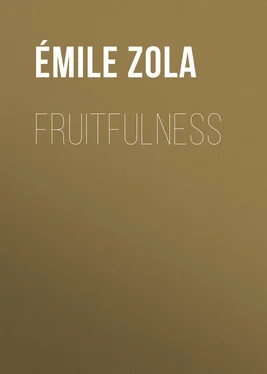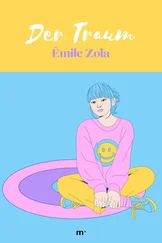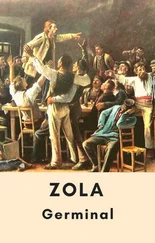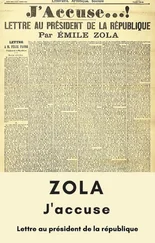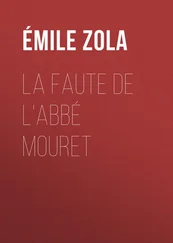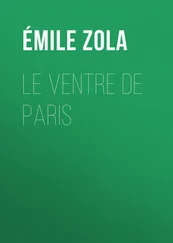Émile Zola - Fruitfulness
Здесь есть возможность читать онлайн «Émile Zola - Fruitfulness» — ознакомительный отрывок электронной книги совершенно бесплатно, а после прочтения отрывка купить полную версию. В некоторых случаях можно слушать аудио, скачать через торрент в формате fb2 и присутствует краткое содержание. Жанр: literature_19, foreign_antique, foreign_prose, на английском языке. Описание произведения, (предисловие) а так же отзывы посетителей доступны на портале библиотеки ЛибКат.
- Название:Fruitfulness
- Автор:
- Жанр:
- Год:неизвестен
- ISBN:нет данных
- Рейтинг книги:5 / 5. Голосов: 1
-
Избранное:Добавить в избранное
- Отзывы:
-
Ваша оценка:
- 100
- 1
- 2
- 3
- 4
- 5
Fruitfulness: краткое содержание, описание и аннотация
Предлагаем к чтению аннотацию, описание, краткое содержание или предисловие (зависит от того, что написал сам автор книги «Fruitfulness»). Если вы не нашли необходимую информацию о книге — напишите в комментариях, мы постараемся отыскать её.
Fruitfulness — читать онлайн ознакомительный отрывок
Ниже представлен текст книги, разбитый по страницам. Система сохранения места последней прочитанной страницы, позволяет с удобством читать онлайн бесплатно книгу «Fruitfulness», без необходимости каждый раз заново искать на чём Вы остановились. Поставьте закладку, и сможете в любой момент перейти на страницу, на которой закончили чтение.
Интервал:
Закладка:
“Oh! what fun! what fun!”
“All the same,” Marianne exclaimed, as she succeeded in freeing herself somewhat from the embraces of the children, “all the same, you know, I want to get up. I mustn’t idle, for it does me no good. And besides, you little ones need to be washed and dressed.”
They dressed in front of the big blazing fire; and it was nearly ten o’clock when they at last went down into the dining-room, where the earthenware stove was roaring, while the warm breakfast milk steamed upon the table. The ground floor of the pavilion comprised a dining-room and a drawing-room on the right of the hall, and a kitchen and a study on the left. The dining-room, like the principal bedchamber, overlooked the Rue de la Federation, and was filled every morning with cheerfulness by the rising sun.
The children were already at table, with their noses in their cups, when a ring at the street door was heard. And it was Dr. Boutan who came in. His arrival brought a renewal of noisy mirth, for the youngsters were fond of his round, good-natured face. He had attended them all at their births, and treated them like an old friend, with whom familiarity is allowable. And so they were already thrusting back their chairs to dart towards the doctor, when a remark from their mother restrained them.
“Now, please just leave the doctor quiet,” said she, adding gayly, “Good morning, doctor. I’m much obliged to you for this bright sunshine, for I’m sure you ordered it so that I might go for a walk this afternoon.”
“Why, yes, of course I ordered it – I was passing this way, and thought I would look in to see how you were getting on.”
Boutan took a chair and seated himself near the table, while Mathieu explained to him that they had remained late in bed.
“Yes, that is all right, let her rest: but she must also take as much exercise as possible. However, there is no cause to worry. I see that she has a good appetite. When I find my patients at table, I cease to be a doctor, you know, I am simply a friend making a call.”
Then he put a few questions, which the children, who were busy breakfasting, did not hear. And afterwards there came a pause in the conversation, which the doctor himself resumed, following, no doubt, some train of thought which he did not explain: “I hear that you are to lunch with the Seguins next Thursday,” said he. “Ah! poor little woman! That is a terrible affair of hers.”
With a gesture he expressed his feelings concerning the drama that had just upset the Seguins’ household. Valentine, like Marianne, was to become a mother. For her part she was in despair at it, and her husband had given way to jealous fury. For a time, amid all their quarrels, they had continued leading their usual life of pleasure, but she now spent her days on a couch, while he neglected her and reverted to a bachelor’s life. It was a very painful story, but the doctor was in hopes that Marianne, on the occasion of her visit to the Seguins, might bring some good influence to bear on them.
He rose from his chair and was about to retire, when the attack which had all along threatened him burst forth. The children, unsuspectedly rising from their chairs, had concerted together with a glance, and now they opened their campaign. The worthy doctor all at once found the twins upon his shoulders, while the younger boy clasped him round the waist and the little girl clung to his legs.
“Puff! puff! do the railway train, do the railway train, please do.”
They pushed and shook him, amid peal after peal of flute-like laughter, while their father and mother rushed to his assistance, scolding and angry. But he calmed the parents by saying: “Let them be! they are simply wishing me good day. And besides, I must bear with them, you know, since, as our friend Beauchene says, it is a little bit my fault if they are in the world. What charms me with your children is that they enjoy such good health, just like their mother. For the present, at all events, one can ask nothing more of them.”
When he had set them down on the floor, and given each a smacking kiss, he took hold of Marianne’s hands and said to her that everything was going on beautifully, and that he was very pleased. Then he went off, escorted to the front door by Mathieu, the pair of them jesting and laughing gayly.
Directly after the midday meal Mathieu wished to go out, in order that Marianne might profit by the bright sunshine. The children had been dressed in readiness before sitting down to table, and it was scarcely more than one o’clock when the family turned the corner of the Rue de la Federation and found itself upon the quays.
This portion of Grenelle, lying between the Champ de Mars and the densely populated streets of the centre of the district, has an aspect all its own, characterized by vast bare expanses, and long and almost deserted streets running at right angles and fringed by factories with lofty, interminable gray walls. During work-hours nobody passes along these streets, and on raising one’s head one sees only lofty chimneys belching forth thick coal smoke above the roofs of big buildings with dusty window panes. And if any large cart entrance happens to be open one may espy deep yards crowded with drays and full of acrid vapor. The only sounds are the strident puffs of jets of steam, the dull rumbling of machinery, and the sudden rattle of ironwork lowered from the carts to the pavement. But on Sundays the factories do not work, and the district then falls into death-like silence. In summer time there is but bright sunshine heating the pavement, in winter some icy snow-laden wind rushing down the lonely streets. The population of Grenelle is said to be the worst of Paris, both the most vicious and the most wretched. The neighborhood of the Ecole Militaire attracts thither a swarm of worthless women, who bring in their train all the scum of the populace. In contrast to all this the gay bourgeois district of Passy rises up across the Seine; while the rich aristocratic quarters of the Invalides and the Faubourg St. Germain spread out close by. Thus the Beauchene works on the quay, as their owner laughingly said, turned their back upon misery and looked towards all the prosperity and gayety of this world.
Mathieu was very partial to the avenues, planted with fine trees, which radiate from the Champ de Mars and the Esplanade des Invalides, supplying great gaps for air and sunlight. But he was particularly fond of that long diversified Quai d’Orsay, which starts from the Rue du Bac in the very centre of the city, passes before the Palais Bourbon, crosses first the Esplanade des Invalides, and then the Champ de Mars, to end at the Boulevard de Grenelle, in the black factory region. How majestically it spread out, what fine old leafy trees there were round that bend of the Seine from the State Tobacco Works to the garden of the Eiffel Tower! The river winds along with sovereign gracefulness; the avenue stretches out under superb foliage. You can really saunter there amid delicious quietude, instinct as it were with all the charm and power of Paris.
It was thither that Mathieu wished to take his wife and the little ones that Sunday. But the distance was considerable, and some anxiety was felt respecting Rose’s little legs. She was intrusted to Ambroise, who, although the youngest of the boys, was already energetic and determined. These two opened the march; then came Blaise and Denis, the twins, the parents bringing up the rear. Everything at first went remarkably well: they strolled on slowly in the gay sunshine. That beautiful winter afternoon was exquisitely pure and clear, and though it was very cold in the shade, all seemed golden and velvety in the stretches of bright light. There were a great many people out of doors – all the idle folks, clad in their Sunday best, whom the faintest sunshine draws in crowds to the promenades of Paris. Little Rose, feeling warm and gay, drew herself up as if to show the people that she was a big girl. She crossed the whole extent of the Champ de Mars without asking to be carried. And her three brothers strode along making the frozen pavement resound beneath their steps. Promenaders were ever turning round to watch them. In other cities of Europe the sight of a young married couple preceded by four children would have excited no comment, but here in Paris the spectacle was so unusual that remarks of astonishment, sarcasm, and even compassion were exchanged. Mathieu and Marianne divined, even if they did not actually hear, these comments, but they cared nothing for them. They bravely went their way, smiling at one another, and feeling convinced that the course they had taken in life was the right one, whatever other folks might think or say.
Читать дальшеИнтервал:
Закладка:
Похожие книги на «Fruitfulness»
Представляем Вашему вниманию похожие книги на «Fruitfulness» списком для выбора. Мы отобрали схожую по названию и смыслу литературу в надежде предоставить читателям больше вариантов отыскать новые, интересные, ещё непрочитанные произведения.
Обсуждение, отзывы о книге «Fruitfulness» и просто собственные мнения читателей. Оставьте ваши комментарии, напишите, что Вы думаете о произведении, его смысле или главных героях. Укажите что конкретно понравилось, а что нет, и почему Вы так считаете.
